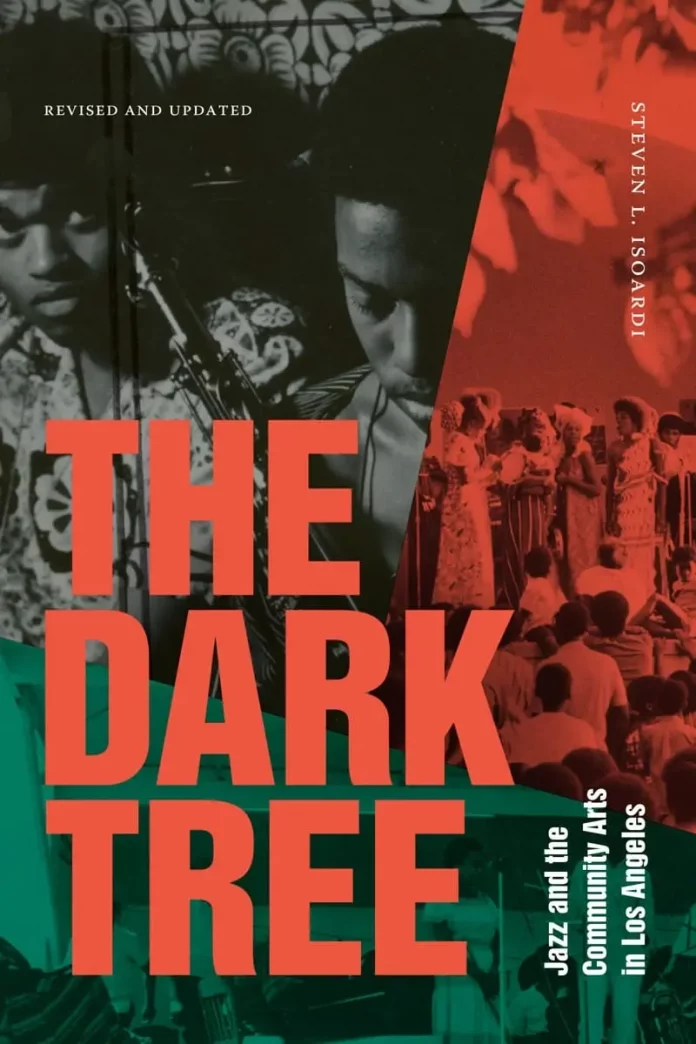The pianist, trombonist and composer Horace Tapscott walked away from Lionel Hampton’s band and devoted himself to community-based arts in the early 1960s, and from then until his death on 27 February 1999 he forged a strong regional association which has left an indelible impression not just on many of those who both knew and survived him, but also on a stage wider than Los Angeles offers.
This book is devoted not only to that work and its legacy, but also to the importance of community as a means not only for coping with reality, grim or otherwise, but also for advancing the arts as a means for leaving an impression upon the world. In the less than four decades that period encompasses the Arkestra (in this case lacking any connection with Sun Ra) and the Union Of God’s Musicians And Artists Ascension both forged deeply positive reputations against the backdrop of a Los Angeles set asunder by the Watts riots of 1965 and the gang warfare of the 1980s and 90s, embodied by the rival Crips and Bloods, together with the drop in average African American living standards that was experienced between the two.
Given that timeframe and what it encompasses, “jazz” seems almost a flag of convenience, a label to tag how Tapscott was both a catalyst and a bandleader. Isoardi rightly stresses the Ellingtonian overtones of his approach to being the former and also his way of getting the best out of musicians and instilling in them the kind of self-belief which might otherwise have gone unnurtured. Factor in the number of Vietnam / U.S. armed forces veterans who found a welcoming home within the institutions Tapscott oversaw, and the relatively poor / non-existent pay those institutions were able to generate, and the significance of Tapscott’s work and inspiring musicianship grows only greater, especially in view of the backdrop of a selfish, materialistic society.
This is thus a book that not so much goes beyond mere biography but essentially transcends it. In recent decades jazz has been embraced by “the academy” to an unprecedented degree. Whilst arguments may rage over how positive that development is, they have no place in this review, not least because this book documents an approach which, while it might have been trumped by the development referred to above, has essentially been laid to rest by the kind of social conservatism which places little value on both the arts and the means by which they come to fruition.
The book’s combination of scholarship and oral history offers a rich tapestry and in this reprinted form is a timely reminder of how the arts can in the right circumstances and with the work of committed people assume the status of a kind of social-safety net.
Dark Tree – Jazz And The Community Arts In Los Angeles, by Steven L. Isoardi. Duke University Press, 377pp, pb, £25.99. ISBN 9781478025283
















